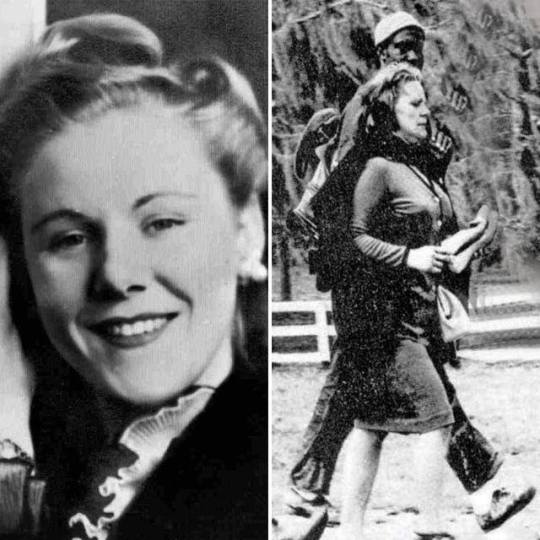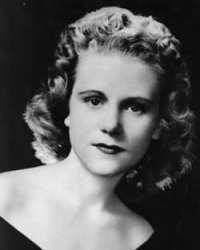#mary lilleboe
Explore tagged Tumblr posts
Link
52 years ago, Viola Liuzzo participated in the March from Selma to Montgomery Alabama in support of protecting voting rights for black citizens in the south. Liuzzo was murdered the night the march ended by 4 klansmen. Mary Liuzzo Lilleboe, daughter of Liuzzo speaks on her mother, society and the civil rights movements of the past and present in this article.
#women's history#women#viola liuzzo#mary lilleboe#liuzzo#martyr#civil rights#activist#nonviolence#martin luther king jr#FBI#the fight continues#selma#selma alabama#protests#murder#white#black#humanity#society#racism#worldwide#black lives matter#50's#60's#today#trayvon martin#white privelage#privelage#Keli Green
2 notes
·
View notes
Link
An interview with Mary Liuzzo, daughter of civil right’s martyr, Viola Liuzzo.
#women's march 2017#Celebrate Women's History Month#women#Women's History#women's history month#civil rights#civil right's leader#viola liuzzo#mary lilleboe#mary liuzzo#activist#vote#voting rights#protest#black#white#white privelage#privelage#history#country#north america#USA#home of the brave#voice
1 note
·
View note
Link
U.S. Rep. John Lewis led a gathering of congressional and civil rights leaders in a wreath-laying ceremony at the Civil Rights Memorial in Montgomery, Alabama, today, honoring those who lost their lives in the struggle for civil rights.
The Memorial, which the SPLC dedicated in 1989, honors 40 martyrs who died during the height of the civil rights movement, between the U.S. Supreme Court’s Brown v. Board school desegregation decision in 1954 and the assassination of Martin Luther King Jr. in 1968.
A delegation of over 200 people including members of Congress, veterans of the civil rights movement, clergy and others gathered at the Memorial, which has been a frequent stop on civil rights pilgrimages led by Lewis.
Joining Lewis at the Memorial were House Majority Leader Steny Hoyer; Caroline Kennedy, the daughter of President John F. Kennedy and former U.S. ambassador to Japan under President Barack Obama; several members of the Alabama congressional delegation and other dignitaries, including U.S. Rep. Barbara Lee, whose grandson Jonah Lee was one of the two young men who laid the wreath for the ceremony.
This year marks the 54th anniversary of Bloody Sunday, the day that Lewis, who was chairman of the Student Nonviolent Coordinating Committee (SNCC), was at the front of the column of demonstrators who attempted to march from Selma to Montgomery in support of voting rights.
Lewis was badly beaten by state troopers who attacked the marchers with clubs and tear gas as they tried to cross the Edmund Pettus Bridge. The attack galvanized support for the historic 1965 Voting Rights Act.
“We come with the spirit and the belief that we can change things. We have the power. We have the ability. We can do it,” Lewis said. “Some of our brothers and sisters, our mothers and our fathers and grandparents, and our great grandparents, gave it all they could. And we, too, have the ability, we have the capacity to stand up, to speak up, and do something. We will do our part.”
Echoing a speech that King once gave, Lewis said, “We will play our role and we will play it so well that no one else could play it any better.”
SPLC President Richard Cohen welcomed Lewis and other members of the delegation to the Memorial, as SPLC Founder Morris Dees looked on from the crowd.
Cohen recognized Jimmie Lee Jackson, one of the martyrs whose name appears on the Memorial. Jackson was killed by a state trooper in 1965 during a march for the right to vote.
“His death led to Bloody Sunday, the great march from Selma to Montgomery and passage of the Voting Rights Act of 1965 by the 89th Congress,” Cohen said. “But there’s a different act that I want to talk about today, another act that was passed by the same 89th Congress. It was an act like the Voting Rights Act that was designed to remedy discrimination and to repair a grave injustice in our country. I’m talking about the Immigration and Nationality Act of 1965. Like the Voting Rights Act, the Immigration Act was passed by a bipartisan Congress. Overwhelming majorities of both parties supported it…President Johnson signed it at the Statue of Liberty. It explained that our immigration system was broken.”
Cohen continued, “Today we all know that our immigration system is broken once again, and we know that once again it will take bipartisan action to remedy it. There will be arguments. There will be good faith debates and disagreements. But one thing should be clear. There should be no place for bigotry in the debates, no place for what President Johnson called the twin barriers of prejudice and privilege. We need an immigration system that reflects our country’s great values, not its failures.”
Standing over the Memorial beside Lewis and other dignitaries, Cohen pointed out the blank space between the 1954 Brown decision and King’s death in 1968. That space on the Memorial – which Cohen said was the most important space on it – signifies that the movement continues through the work of everyone gathered there, he said, particularly Lewis and other members of Congress.
“When you come back here next year, let’s have something to celebrate,” Cohen said, addressing members of Congress. “Let’s have something to fill this space. Let’s have something – the passage of another Civil Rights Act – something we can all be proud of and something that will move us toward our goal of a more perfect union.”
The ceremony was part of a regular pilgrimage sponsored by the Faith & Politics Institute, which brings participants to historic civil rights sites in Alabama. The 2019 Congressional Civil Rights Pilgrimage began today and will continue through Monday, March 4. It includes stops in Selma as well as Montgomery.
The Civil Rights Memorial, designed by Maya Lin and built by the Southern Poverty Law Center, stands outside the SPLC office and less than a block from the Dexter Avenue King Memorial Baptist Church, where King led the Montgomery bus boycott that galvanized the movement. Members of the delegation attended an event at the church before walking over to today’s ceremony at the Memorial.
...A relative of a civil rights martyr whose name is inscribed on the Memorial attended the church event before walking over with the rest of the delegation to today’s ceremony. Mary Liuzzo Lilleboe is the daughter of Viola Liuzzo.
Liuzzo traveled to Alabama in March 1965 to help with the voting rights march after seeing television reports of the attack at the Edmund Pettus Bridge. She was ferrying marchers between Selma and Montgomery when she was shot and killed by Klansmen in a passing car.
The martyrs whose names are listed on the Memorial were murdered because they were active in the movement; were killed as acts of terrorism aimed at intimidating civil rights activists; or whose deaths, like that of Emmett Till, helped spur the movement forward by demonstrating the brutality faced by African Americans in the South.
12 notes
·
View notes
Photo


Viola Liuzzo was born in this day in 1925. Liuzzo, a mother of five and civil rights activist, was murdered by the KKK in 1965. Via A Mighty Girl: On March 25, 1965, the final day of the Selma to Montgomery march, Liuzzo was helping shuttle marchers from Montgomery back to Selma in her car, along with a fellow activist, 19-year-old Leroy Moton. When she stopped at a red light, a car filled with local Ku Klux Klan members pulled up alongside them. When they saw Liuzzo, a white woman, and Moton, a black man, together, they followed them, pulled a gun, and shot directly at Liuzzo. She was killed by a bullet to the head; Moton, who was covered in her blood, pretended to be dead when the Klan members investigated the crashed vehicle. The murder of the 39-year-old Liuzzo, a Detroit housewife and mother of five, shocked millions of people around the country and, along with the outrage at the violent treatment of many of the Selma protesters, helped to spur the signing of the historic 1965 Voting Rights Act five months later. Liuzzo, who had grown up in deep poverty in Tennessee, was already an active member of the Detroit NAACP when she saw television footage of the beating of hundreds of civil rights activists by the Edmund Pettus Bridge during the first attempted march to Selma on March 7, 1965. Horrified by "Bloody Sunday," she decided to heed Dr. Martin Luther King, Jr.'s call for volunteers to come to Selma to help in the struggle. Her husband was opposed to her plan, telling her that civil rights "isn't your fight;" she responded that "it's everybody's fight" and drove to Selma to volunteer during the four-day march from Montgomery to Selma. Liuzzo, who called her family nightly with updates, was thrilled by the march's success and to be contributing to what she considered the most important fight of her time. After her death, many prominent civil rights leaders, including King, James Farmer, and Roy Wilkins, attended Liuzzo's funeral in Detroit to pay their respects. The four Klan members were quickly arrested; one of the men was a paid informant for the FBI and protected from prosecution, the other three were found guilty in a federal trial and sentenced to ten years in prison. In an attempt to obscure the fact that an informant was in the car, FBI Director J. Edgar Hoover began a smear campaign to the press directed at Liuzzo, including allegations that she was a drug addict and that she was having an affair with Moton. Hoover and the FBI's role in the smear campaign was uncovered in 1978 when her children obtained FBI case documents under the Freedom of Information Act. While her story was largely forgotten for many years, Liuzzo's commitment and sacrifice for the pursuit of civil rights has recently received more recognition. Last November, she was posthumously awarded the 2017 Fred L. Shuttlesworth Human Rights Award, an award named in honor of the co-founder of the Southern Christian Leadership Conference which honors outstanding individuals who contributed to civil and human rights. And, while the lost of their mother was devastating to her children, they are deeply proud of how she lived her life and the legacy she left. Her now 69-year-old daughter Mary Liuzzo Lilleboe says that when they obtained her mother's journal from the FBI, she saw Liuzzo had written "I can’t sit back and watch my people suffer." To Lilleboe, that passage sums up what drove her mother to take action: “She actually believed it when Christ said that the suffering and needy are our people. Mom saw all other human beings as her people.”
#antifa#antifascist#antifascism#antiracist#antiracism#viola liuzzo#original antifa#never forget never forgive#rest in power#civil rights
390 notes
·
View notes
Link
#viola liuzzo#mary liuzzo lilleboe#civil rights#women#history#fight#march#march on#themarchcontinues#rememberence#nonviolence#ecorsair#corsair#kelli green#article#feature#interview#country#USA#civil right's movement#FBI#informant#selma#march on selma#alabama#montgomery#south#NAACP#everybody's fight
1 note
·
View note
Text
Women’s History Month: Remembrance,celebration
L-R; Mary Liuzzo Lilleboe, Viola liuzzo. An interview with Mary Liuzzo Lilleboe, daughter of Civil Right’s martyr, Viola Liuzzo. By Kelli Green In January the world shook with the voices of thousands of women from across all seven continents, in the largest protest in the history of our country. Among them were a group of marchers in Washington who carried a sign dedicated to the memory Viola…
View On WordPress
0 notes